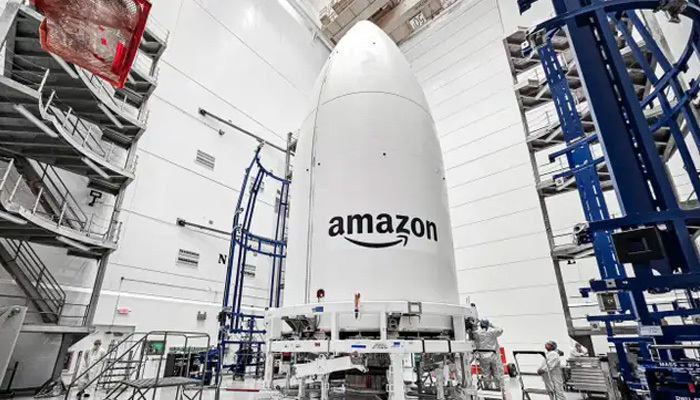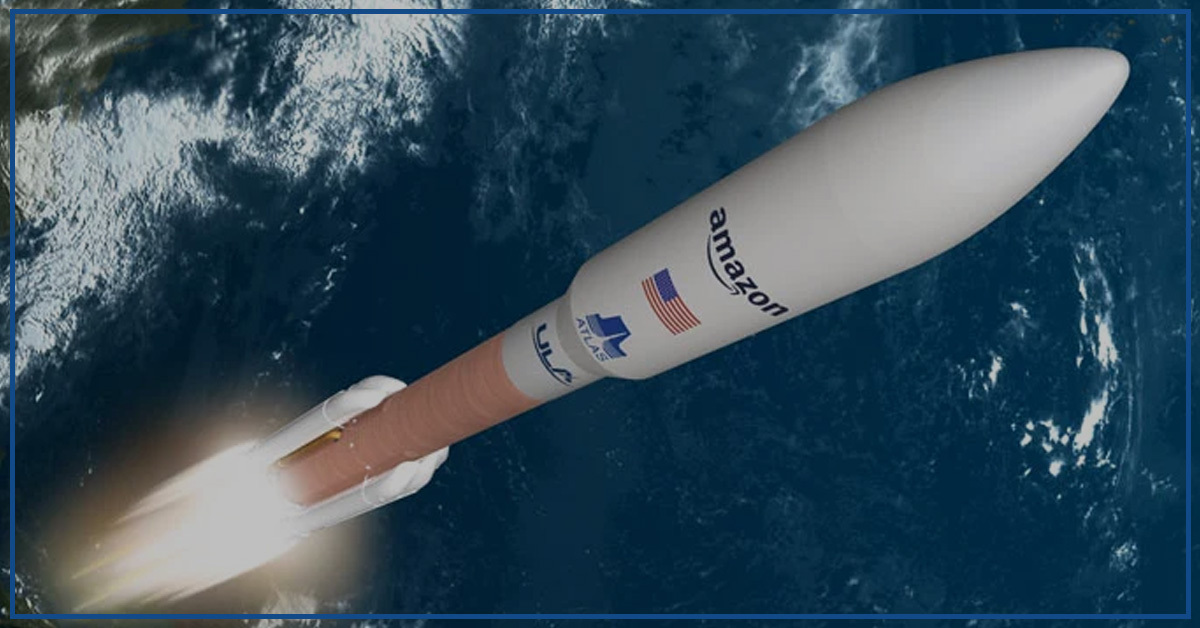Amazon is gearing up for a groundbreaking moment as it readies itself to launch Project Kuiper’s two satellites in a monumental test mission. This move is a pivotal step in Amazon’s ambitious plan to provide global internet coverage from space, putting them in direct competition with Elon Musk’s Starlink service.
The launch is scheduled to take place on Friday, setting a launch window for the Atlas V rocket from the United Launch Alliance (ULA) hub at Kennedy Space Center in Florida. The window will span two hours, starting at 2:00 pm local time (1800 GMT).
Project Kuiper, Amazon’s brainchild, aims to provide fast and affordable broadband to underserved communities worldwide. The initiative envisions a vast constellation of over 3,200 satellites in low Earth orbit (LEO) to accomplish this feat.
Jeff Bezos, the founder of Amazon, expressed his excitement about this historic moment, stating, “This is Amazon’s inaugural venture into deploying satellites into space. We anticipate significant learnings from this mission, irrespective of how events unfold.”
The first operational satellites for Project Kuiper are slated for launch in early 2024. Amazon’s aspiration is to conduct initial tests with customers by the end of the following year.

The test on Friday is expected to involve critical operations, including establishing contact with probes from Earth, deploying solar panels, and validating the functionality of all instruments at desired temperatures.
The prototypes involved in this mission will be removed from orbit and safely disintegrated in the Earth’s atmosphere once the test is concluded.
Elon Musk’s SpaceX made a significant stride in this space race by launching the first batch of its operational Starlink satellites in 2019, boasting a formidable fleet of more than 3,700 satellites. OneWeb, based in London, is another early contender in this rapidly evolving sector.
These services are designed with the intent of providing internet access to the remotest and most underserved regions globally, including areas struck by war or natural disasters.
Recognizing the strategic significance of this technology, various countries and organizations are eager to dive into the satellite internet sector. China, for instance, plans an impressive launch of 13,000 satellites as part of its GuoWang constellation. Canada’s Telesat and Germany’s Rivada have their respective satellite plans, highlighting the intensifying competition and interest in this domain.
The European Union’s Iris project, featuring 170 satellites, and the US military’s Space Development Agency, eyeing a substantial deployment of 300-500 satellites, further emphasize the growing importance of satellite-based internet connectivity on a global scale.





